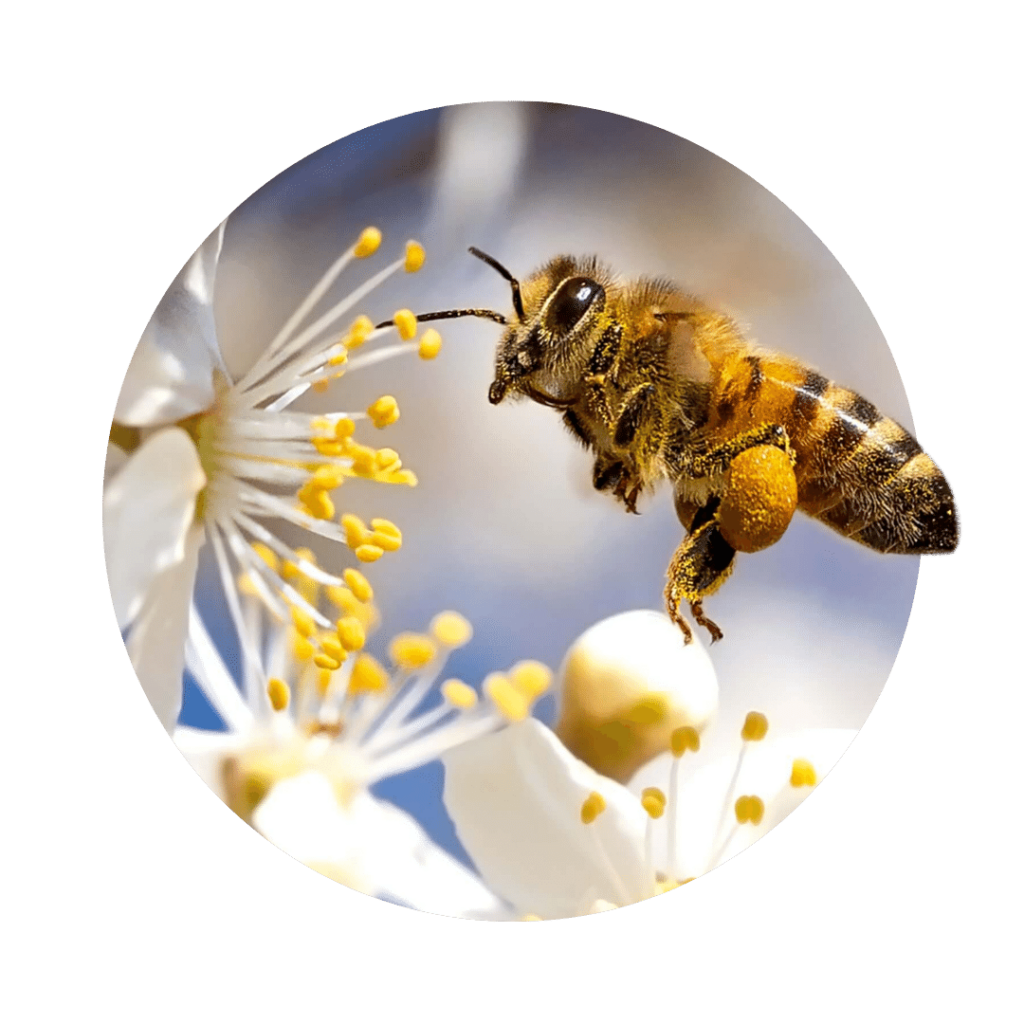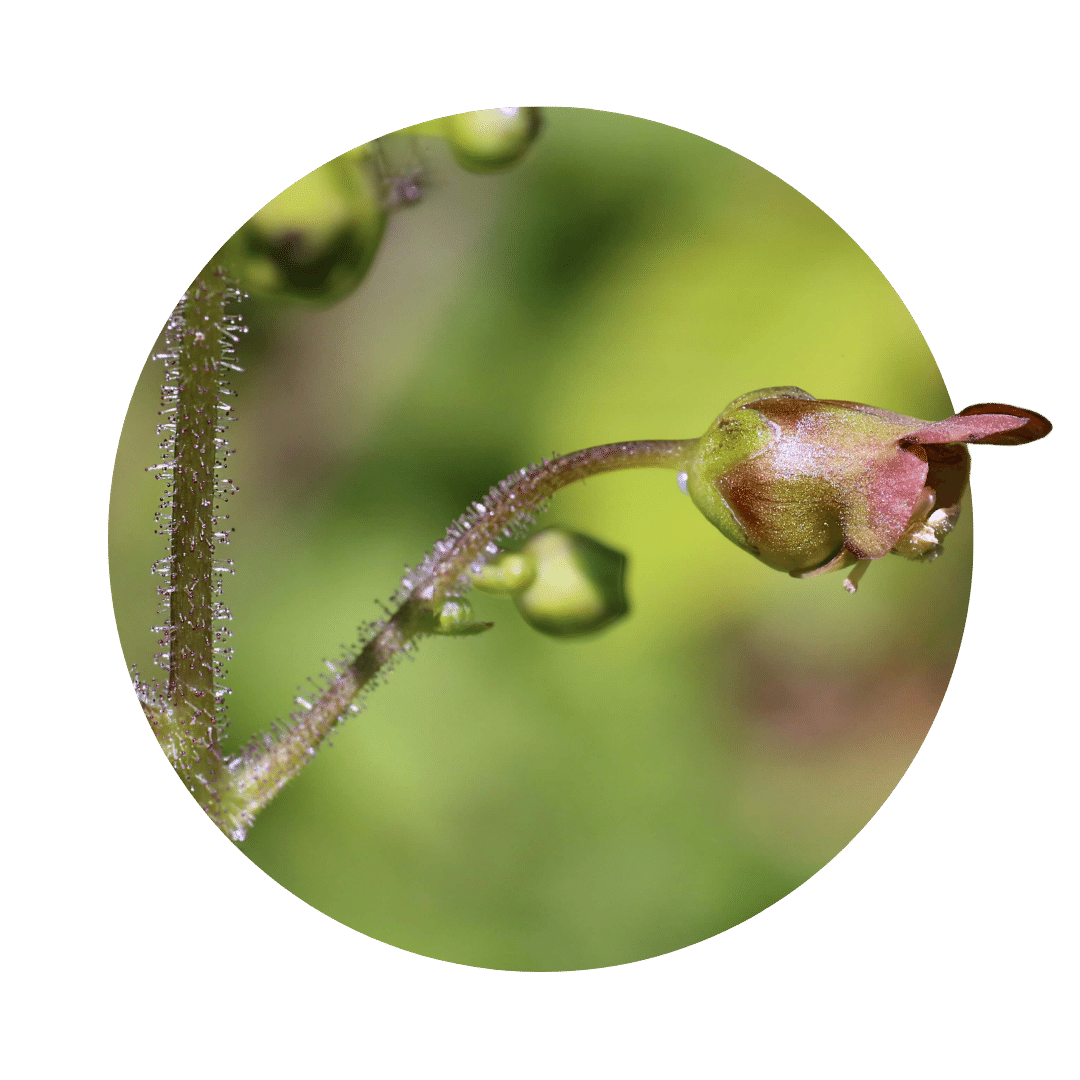Apis mellifica: The bee emergency remedy
The bee has been a cultural successor since the beginning of human civilization. Even the Egyptians knew and appreciated the powers of bees thousands of years ago. Today, their importance for plants has been brought back into focus. Bees are an important factor for successful harvests. However, pesticides and sprays are having a dramatic impact on bees and are causing ever greater problems for agriculture. In medicine, the bee is still valued for highly acute illnesses and as an important means of strengthening the immune system.
Facts about Apis mellifica
Did you know that...
a queen bee lays up to 500,000 eggs in her lifetime?
a bee colony produces approx. 100 kg of honey per year?
900,000 to 6 million flower visits must be made for 1 kilogram of honey?
What is Apis mellifica?
Apis mellifica is the processing of the honey bee. The whole insect is processed with its venom. The honey bee is a native insect that is primarily responsible for pollinating flowers. Apis mellifica produces two important substances that humans have learned to use culturally. It produces honey, with which it feeds itself, and propolis, a disinfectant substance with which it protects itself from pathogens and fungi and cleans and disinfects the hive.
General information and medicinal effects of Apis mellifica
Anti-inflammatory
Apis mellifica has an anti-inflammatory effect. The medicinal plant is mainly used for highly acute, acute and subacute inflammations with or without effusion. Apis modulates the inflammation and brings it back to a normal level, from which healing can begin.
Edema reducing
Apis mellifica has an anti-oedematous effect. Inflammations for which Apis is indicated often form edema, so that the affected tissues or mucous membranes swell and lose their function. Apis helps to reorganize and reduce the oedema. The swelling and loss of function recede and the situation relaxes again.
Anti-allergic
Apis is anti-allergic. Apis trains the Immunesystem and ensures that the undirected immune reaction is weakened. This reduces the tendency to allergies and decreases sensitivity to the actual allergen.
Apis mellifica: Ingredients
Various substances with therapeutic benefits have been discovered in Apis mellifica. These include
Proteins
Formic acid
Saponins
Tryptophans
Choline
Fatty acids
Apis mellifica: effect on body and mind
Apis is one of the most important remedies for inflammations and allergies. Apis is used as a specific remedy in particular for inflammations that are accompanied by effusions and edematous infiltrations. On a physical level, it influences the immune system and the inflammatory cascade. The target tissues are primarily serous membranes, such as those found in the respiratory tract or joints. On a psychological level, it is used to treat states of agitation associated with anxiety and irritability. But it can also be used to treat depression, i.e. a deterioration in mood, especially if this is characterized by restlessness and agitation.
Properties of Apis
- antiallergic
- anti-edematous
- decongestant
- immunomodulating
- antipyretic
- anti-inflammatory
Fields of application in naturopathy
Apis mellifica is mostly concerned with immune processes and inflammation of tissues associated with effusions.
Apis mellifica for laryngitis
In the case of laryngitis, an edema forms under the mucous membranes, which not only makes it difficult to speak but also to breathe. Apis mellifica helps the body to reduce the edema by relieving the inflammation. This makes the voice clearer again and breathing easier.
Apis mellifica as an acute remedy for allergies
Apis mellifica is regarded as THE remedy against Allergies. On the one hand, it modulates the immune system and shows it its false, excessive reaction, on the other hand it stimulates the body to break down the edema that has formed. The swelling subsides more quickly and the allergic reaction is weakened. In this context, Apis is also often used for desensitization in allergy-free phases.

Apis mellifica to strengthen the immune system
Some Immune systems are very sluggish and need to be stimulated in order to fight off infections effectively and at an early stage. Apis mellifica can be used to stimulate the immune system as part of a stimulation therapy. If other germs then enter the body, the body is faster, recognizes the pathogens and can immediately mount an immune response.
Apis mellifica for ovarian cysts
Ovarian cysts are usually caused by inflammatory processes in which insufficient hormone synthesis overwhelms the tissue. Apis helps the body to reduce the inflammation and dissolve the cyst. The ovaries are relieved and can resume their normal function and hormone synthesis.
Notes on the use of Apis mellifica
Apis is usually an acute remedy and in these cases is taken up to every half hour for a very limited period of a few days. Prophylactic therapies for desensitization or cyst treatments can also extend over several weeks. Apis mellifica is usually administered orally three times a day.
Apis during pregnancy & breastfeeding
Apis mellifica can also be taken without hesitation during pregnancy and breastfeeding.
Apis for allergies
As Apis mellifica is one of the cardinal remedies for allergies, this area is one of its main areas of application and is not a contraindication.
Discover our sprays
With natural methods such as the individual spagyric sprays from Zimply Natural, complaints can be treated and sustainably alleviated.
Healing power of Apis mellificanutzen!
Use the healing power of Apis and our other 100 Healingplants for the natural relief of your complaints. Improve your well-being and support your body, your mind and your soul! Use our configurator to create your personal spagyric spray, which is tailored to your needs and accompanies you on your natural path to the improvement of body, mind and soul.





